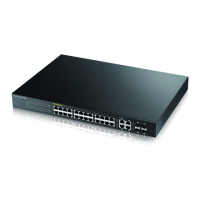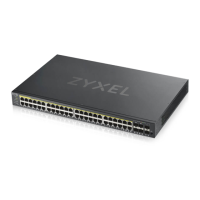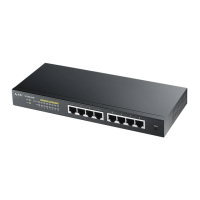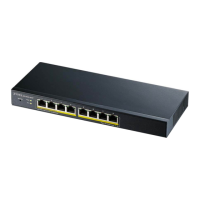Chapter 36 Layer 2 Protocol Tunneling
GS1920v2 Series User’s Guide
211
spanning tree, even though switch A is not directly connected to switches B, C and D. Topology change
information can be propagated throughout the service provider’s network.
To emulate a point-to-point topology between two customer switches at different sites, such as A and B,
you can enable protocol tunneling on edge switches 1 and 2 for PAgP (Port Aggregation Protocol),
LACP or UDLD (Uni-Directional Link Detection).
Figure 142 L2PT Network Example
36.1.2.1 Layer 2 Protocol Tunneling Mode
Each port can have two layer 2 protocol tunneling modes, Access and Tunnel.
• The Access port is an ingress port on the service provider's edge device (1 or 2 in Figure 142 on page
211) and connected to a customer switch (A or B). Incoming layer 2 protocol packets received on an
access port are encapsulated and forwarded to the tunnel ports.
• The Tunnel port is an egress port at the edge of the service provider's network and connected to
another service provider’s switch. Incoming encapsulated layer 2 protocol packets received on a
tunnel port are decapsulated and sent to an access port.
36.2 Configuring Layer 2 Protocol Tunneling
Click SWITCHING > Layer 2 Protocol Tunneling in the navigation panel to display the screen as shown.
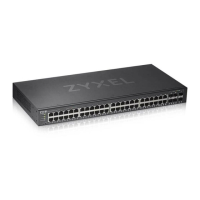
